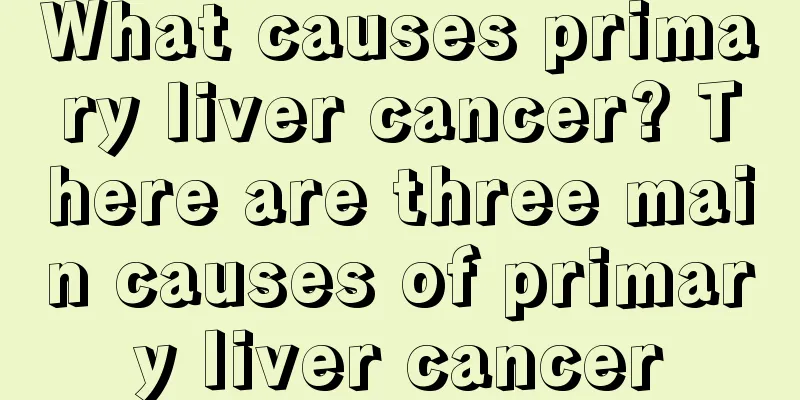What are the side effects of radiotherapy for lung cancer

|
What are the side effects of radiotherapy for lung cancer? The incidence of lung cancer is very high, and the mortality rate is also increasing very fast. It is a malignant tumor that poses a great threat to life. Currently, the main clinical treatments for this disease are surgery, radiotherapy and chemotherapy. Let's take a look at the side effects of radiotherapy for lung cancer. 1. Systemic reaction: manifested as a series of functional disorders and imbalances, such as lack of energy, loss of appetite, physical weakness, fatigue, nausea, vomiting, fullness after eating, etc. Mild cases can be left untreated, while severe cases should be treated in time, combined with traditional Chinese medicine to improve the body's immunity, such as high-concentration Ganoderma lucidum preparations, fungal polysaccharide extracts, etc. 2. Local reactions: Dry skin will show itching, pigmentation and peeling, which may produce permanent light brown spots. Oily skin will show eczema and blisters at the irradiated part, which may cause erosion and ulceration in severe cases. 3. Mucosal reaction: Mild symptoms include redness, swelling, erythema, congestion of the oral mucosa, and decreased secretions. Dry mouth, slight pain, and slightly less food intake. Moderate symptoms include obvious congestion and edema of the oropharynx, formation of spotted white membranes and ulcers, obvious pain, and difficulty eating. Severe symptoms include extreme congestion, erosion, bleeding of the oral mucosa, fusion into white membranes, aggravation of ulcers, purulent secretions, severe pain, inability to eat, and occasional fever. 4. Radiation esophagitis: Acute radiation esophagitis is caused by radiation-induced damage to the esophageal mucosa, decreased barrier protection function of the esophagus, and inflammation. The clinical manifestation is swallowing pain, which usually begins 2 to 3 weeks after the start of radiotherapy. It appears when the tumor tissue absorbs about 30Gy, reaches a peak around 4 to 5 weeks, and then can be alleviated, and lasts until about two weeks after the end of radiotherapy. 5. Radiation pneumonitis: Acute radiation pneumonitis is a common and dangerous complication of radiotherapy for lung cancer. In fact, permanent damage will occur after 2000cGy of irradiation to the lungs, and acute exudative inflammation will occur after 3000-4000cGy/3-4 weeks of irradiation to the lungs. Pathological examination shows thickening of the blood vessel wall, swelling of endothelial cells, formation of fibrous emboli, edema of alveolar septa, and swelling of collagen fibers. It can be seen that the side effects of radiotherapy for lung cancer are very large. In fact, lung cancer is a disease that can be prevented and controlled. Existing studies have shown that after developed Western countries have implemented tobacco control and environmental protection, the incidence and mortality of lung cancer have dropped significantly in recent years. Foreign studies have shown that quitting smoking can significantly reduce the incidence of lung cancer, and the earlier you quit smoking, the more obvious the reduction in the incidence of lung cancer. Therefore, quitting smoking is the most effective way to prevent lung cancer. |
>>: What type of disease is small cell lung cancer
Recommend
The difference between pulling bait and rubbing bait
Nowadays, many people love fishing, but when it i...
I've had thyroid cancer for half a year, and it's swollen again, what's going on?
Thyroid cancer is a malignant tumor that originat...
Keep running and cure insomnia
Nowadays, society is stressful and many people su...
Will thyroid cancer cause fever all over the body?
Thyroid cancer is a malignant tumor that originat...
How to choose a traditional Chinese medicine hospital for skin cancer treatment
In recent years, the number of patients with skin...
Can red wine be used to wash the face?
Red wine is a type of alcoholic beverage that peo...
The whole body is hot and weak
In fact, many people have experienced whole body ...
Advantages and disadvantages of paraffin sections of gastric cancer? Pay attention to these points
Gastric cancer is a malignant tumor originating f...
How hereditary is prostate cancer
Almost all men will have prostate problems. If th...
Can loss of smell caused by rhinitis be restored? The four main causes of rhinitis
Rhinitis is a chronic nasal disease. Although it ...
Face massage techniques
Facial massage cannot be performed casually. Many...
Are the lumbar vertebrae the same as the spine?
Everyone has lumbar vertebrae and spine in their ...
What to do if the mosquito bite causes swelling
Every summer, various mosquitoes start to bite us...
What medicine should I take for constipation after colon cancer surgery
The first symptom of colorectal cancer is blood i...
Armpit pain may be caused by breast cancer
As people's living standards continue to impr...









